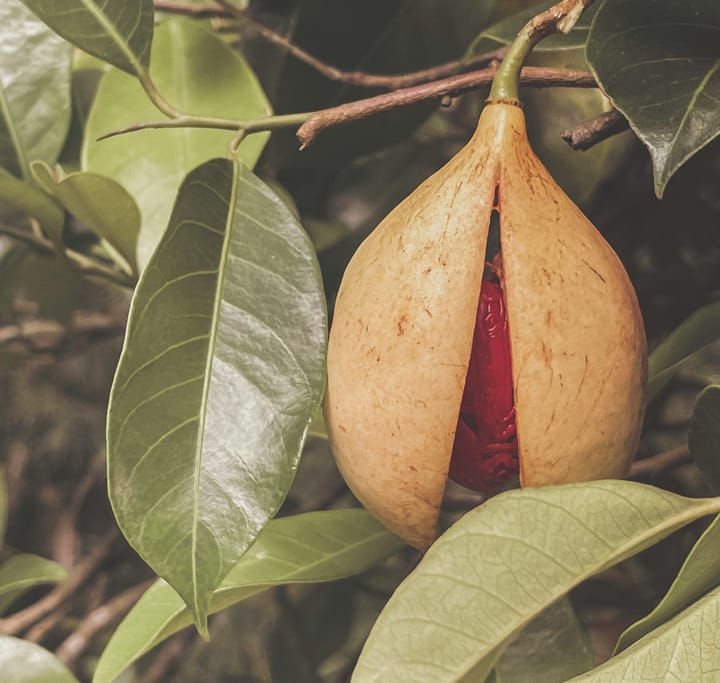Korea's Most Expensive Mushrooms
In Korea, the prized Yangyang pine mushrooms thrive exclusively in their natural habitat. These luxurious fungi resist artificial cultivation and can only be harvested during a brief 30-day window each year, enhancing their rarity and exceptional value.

Nestled within Korea’s pristine landscapes, the county of Yangyang is home to one of nature’s finest treasures: the premium pine mushroom, or songyi.
Known for its exceptional aroma, dense texture, and unmatched flavor, this rare mushroom isn’t just a culinary delight; it’s a symbol of nature’s unparalleled artistry.
But what makes Yangyang pine mushrooms so expensive, and why are they revered as Korea’s finest?
Nature’s Gift: A Mushroom Like No Other
Unlike cultivated mushrooms that can be grown in controlled environments, pine mushrooms are entirely wild.
They thrive in very specific conditions that human hands cannot replicate. These fungi grow symbiotically with red pine trees aged 20 to 50 years, requiring exacting temperature, humidity, and soil conditions.
Yangyang’s environment provides the ideal blend—cool sea breezes from the East Sea, dramatic temperature variations, and the protective embrace of the Taebaek Mountain Range.
Together, these factors produce mushrooms with firm flesh, an intense earthy aroma, and a flavor profile that aficionados describe as "sublime."
Finding the Nature's Treasure
Harvesting pine mushrooms is no ordinary task—it’s an art form passed down through generations.
These mushrooms are masters of camouflage, often buried beneath layers of soil and forest debris. Skilled foragers know the subtle signs of a mushroom’s presence, such as slight mounds in the earth or faint scents carried by the wind.
Timing is everything; the mushrooms must be picked when the cap is only slightly open, ensuring peak freshness and value. A mushroom picked too late loses both its market worth and its culinary appeal.
Foraging isn’t just difficult—it’s tightly regulated. Many pine mushroom-rich forests are privately owned or managed by local communities.
Unauthorized entry can lead to severe legal penalties, including fines of up to 20 million KRW or prison sentences of up to seven years.
The Grades: What Makes a Songyi Worth Millions
Not all pine mushrooms are created equal. Their value depends on a meticulous grading system that considers size, shape, and freshness:
- Grade 1: The gold standard. The mushroom’s cap remains tightly closed (less than one-third open), the stalk is over 8 cm long, and the texture is firm.
- Grades 2 & 3: Slightly opened caps or thinner stalks fall into these categories. They’re still highly prized but less exclusive.
- Grades 4 & 5: Mushrooms with fully opened caps, insect damage, or imperfections. Though less desirable, these grades still carry the characteristic aroma and flavor of Yangyang pine mushrooms.
Top-grade pine mushrooms can fetch over 1.5 million KRW (USD 1,050) per kilogram during the peak season. At auctions, prices often soar even higher, with intense bidding wars reflecting their rarity and prestige.
Why Yangyang? The Secrets Behind Its Global Fame
While pine mushrooms grow in various regions of Korea, Yangyang’s are considered the finest.
The county’s combination of natural elements—salty sea air, mountainous terrain, and fertile soil—produces mushrooms with a denser texture and a richer aroma than their counterparts.
These qualities have earned Yangyang pine mushrooms the distinction of being registered as Korea’s first geographic indication product for forest products, solidifying their status as a national treasure.
A Culinary and Cultural Icon
Pine mushrooms are more than just food; they’re a cultural icon in Korea, much like Matsutake mushrooms in Japan.
Both are cherished for their exceptional aroma, rarity, and connection to seasonal traditions, embodying the cultural and culinary heritage of their respective regions.
Historically, they were presented as gifts to royalty and nobility. Today, they’re still considered a symbol of prosperity, often gifted during special occasions.
Their rarity and premium status make them an exquisite addition to any gourmet table.
Even lower-grade mushrooms are highly sought after. They might lack the visual perfection of their premium counterparts, but their aroma and flavor remain unmatched.
Many locals add these mushrooms to soups, stews, and even instant noodles to elevate everyday meals into a luxurious experience.
The Cost of Exclusivity
The cost of Yangyang pine mushrooms reflects both their scarcity and the painstaking effort required to harvest them.
With demand far outstripping supply, prices have skyrocketed. In peak years, auctions have recorded prices exceeding 1.2 million KRW (USD 840) per kilogram for first-grade mushrooms.
Despite the cost, connoisseurs and collectors are willing to pay for a taste of what’s considered the pinnacle of nature’s bounty.
The Future of Yangyang Pine Mushrooms
While their demand continues to rise, the supply of pine mushrooms remains limited due to their reliance on natural conditions.
Efforts are underway to preserve the forests and ensure sustainable harvesting practices.
Yangyang County has also established branding and certification systems to protect the reputation and authenticity of its mushrooms, ensuring their legacy for generations to come.
A Taste of Luxury
For many, the aroma of a Yangyang pine mushroom signals the arrival of autumn and the culmination of another year’s harvest.
It’s a culinary experience unlike any other—a celebration of nature’s perfection and the hard work of those who bring this treasure to our tables.
Whether enjoyed in a gourmet restaurant or added to a simple home-cooked dish, these mushrooms offer a taste of Korea’s rich natural heritage.


